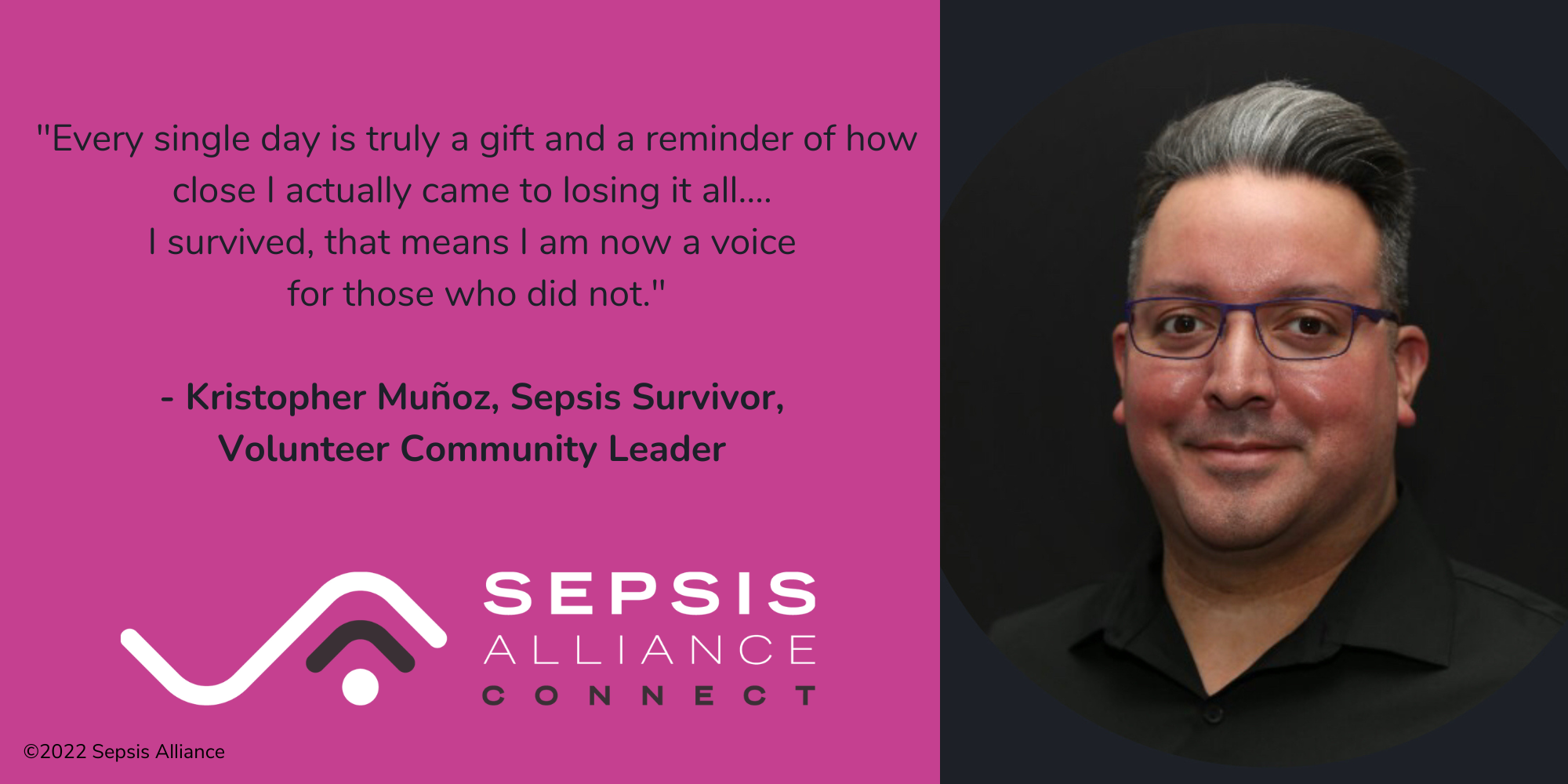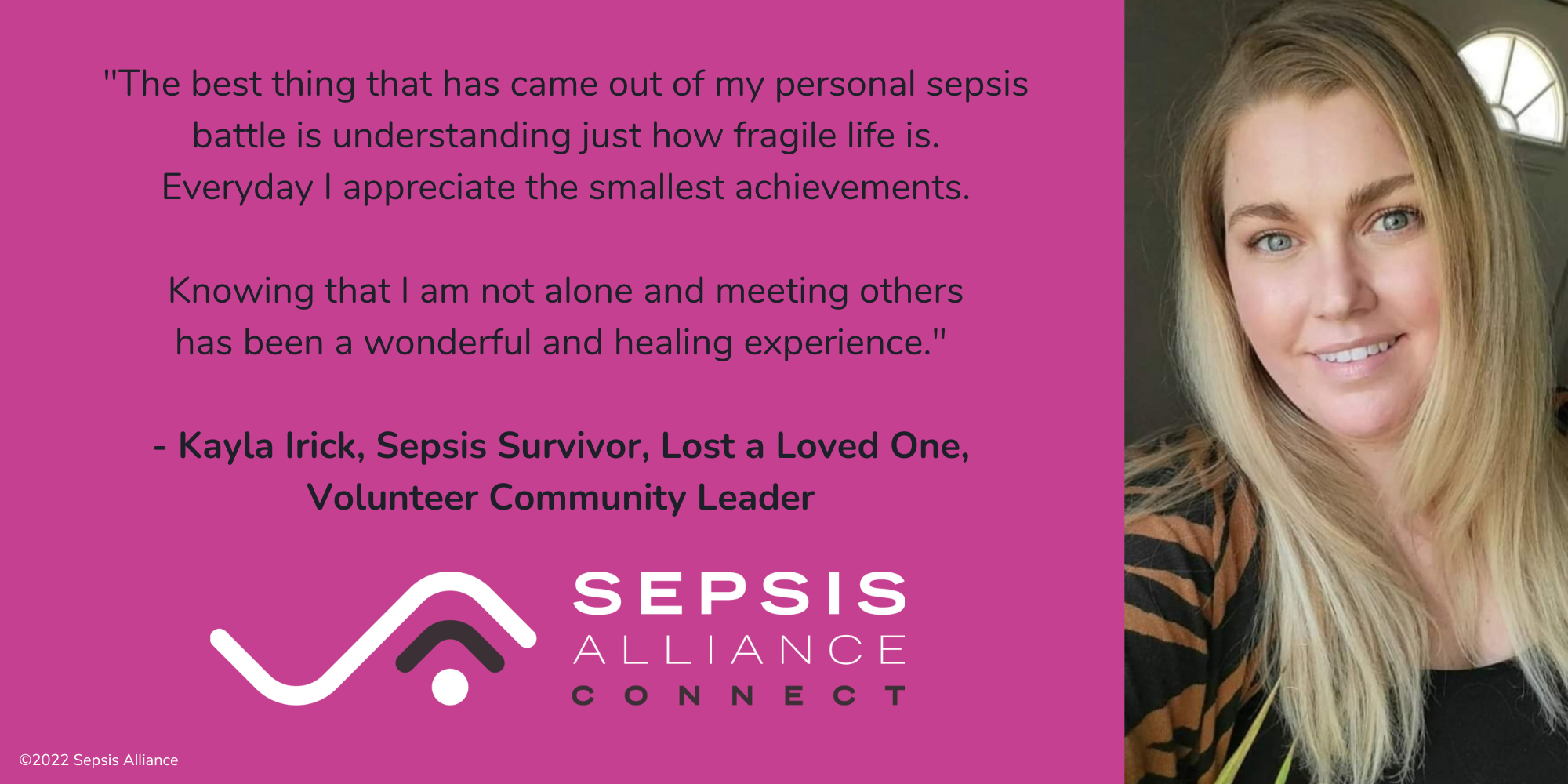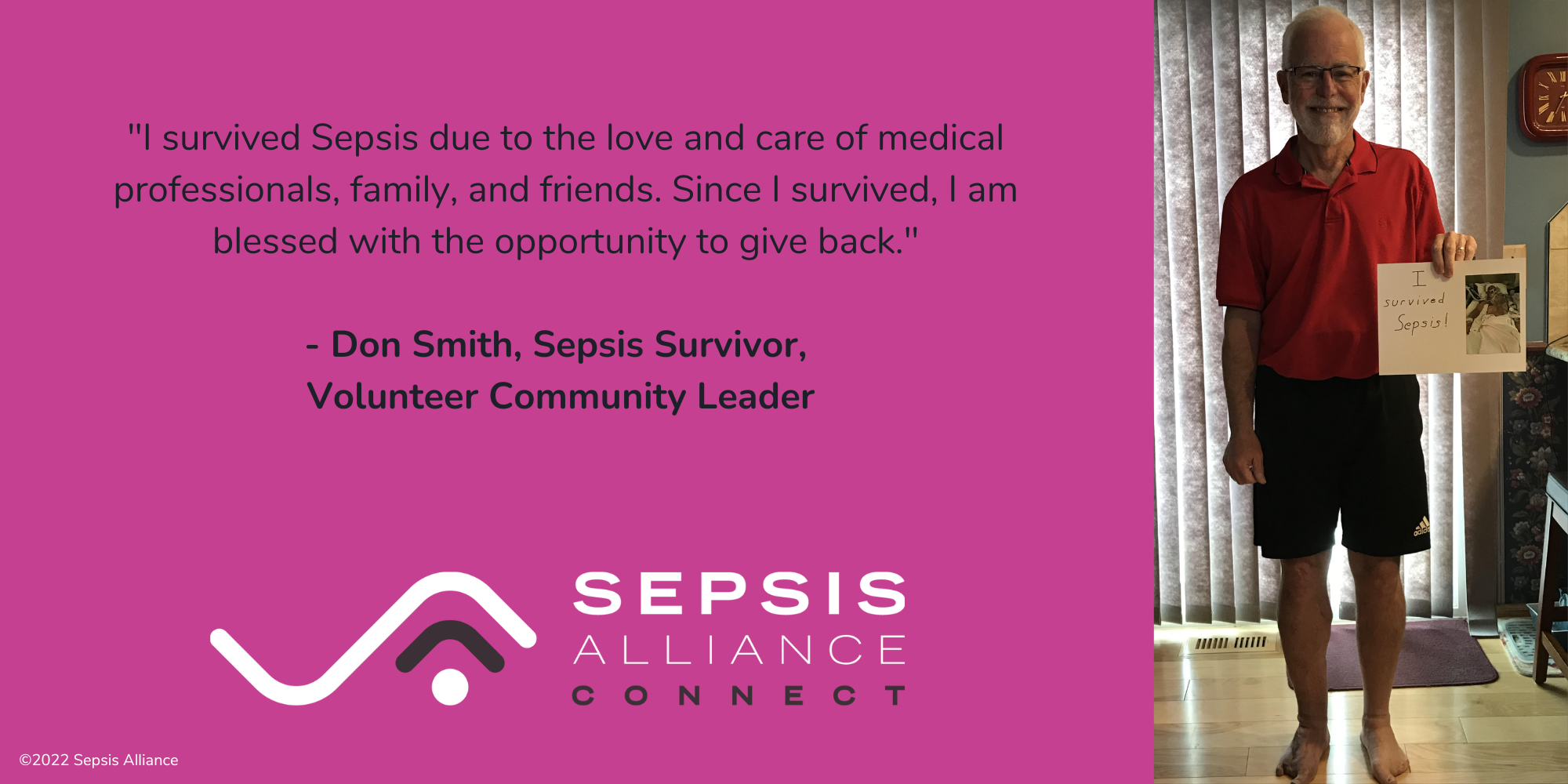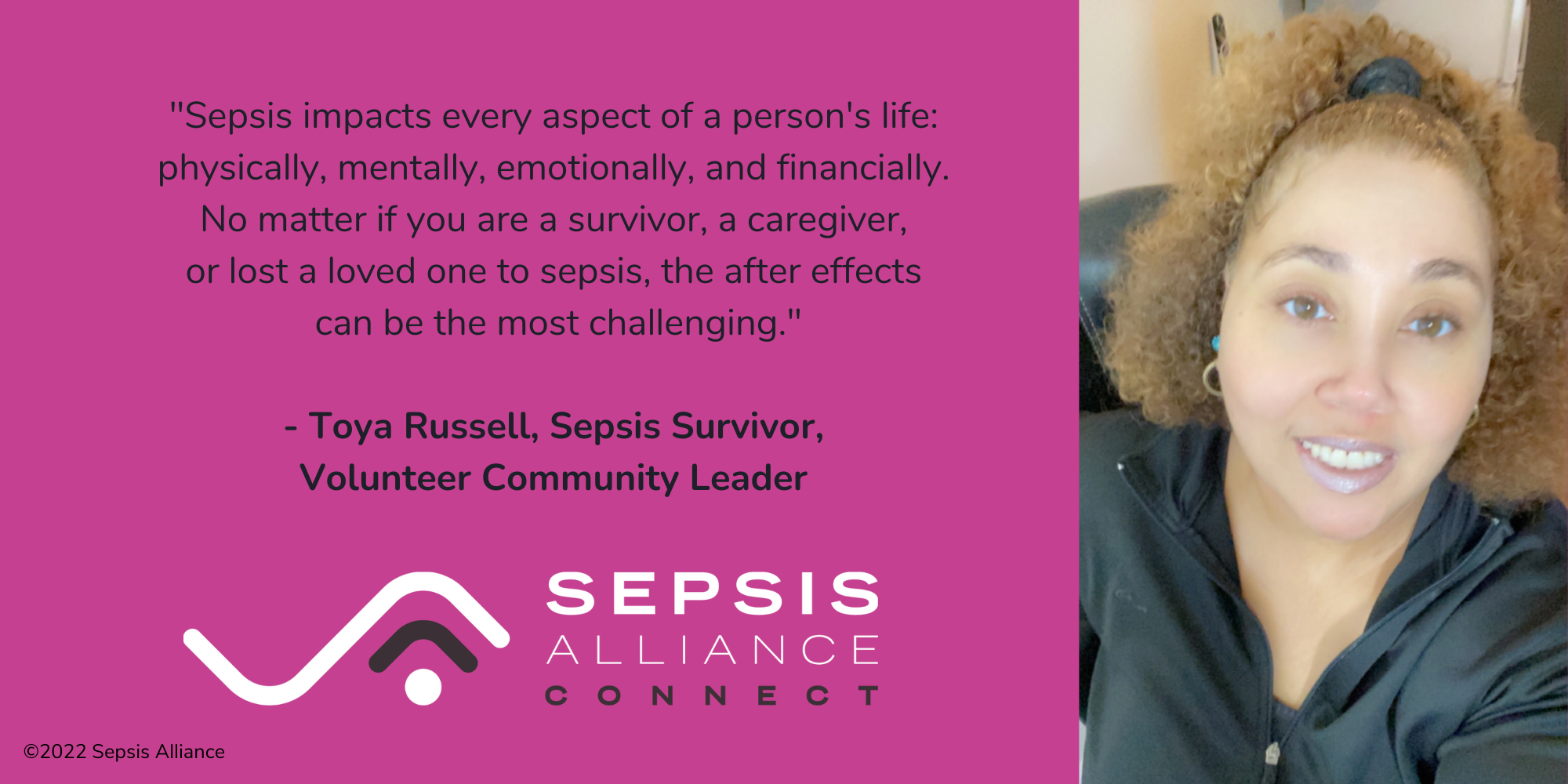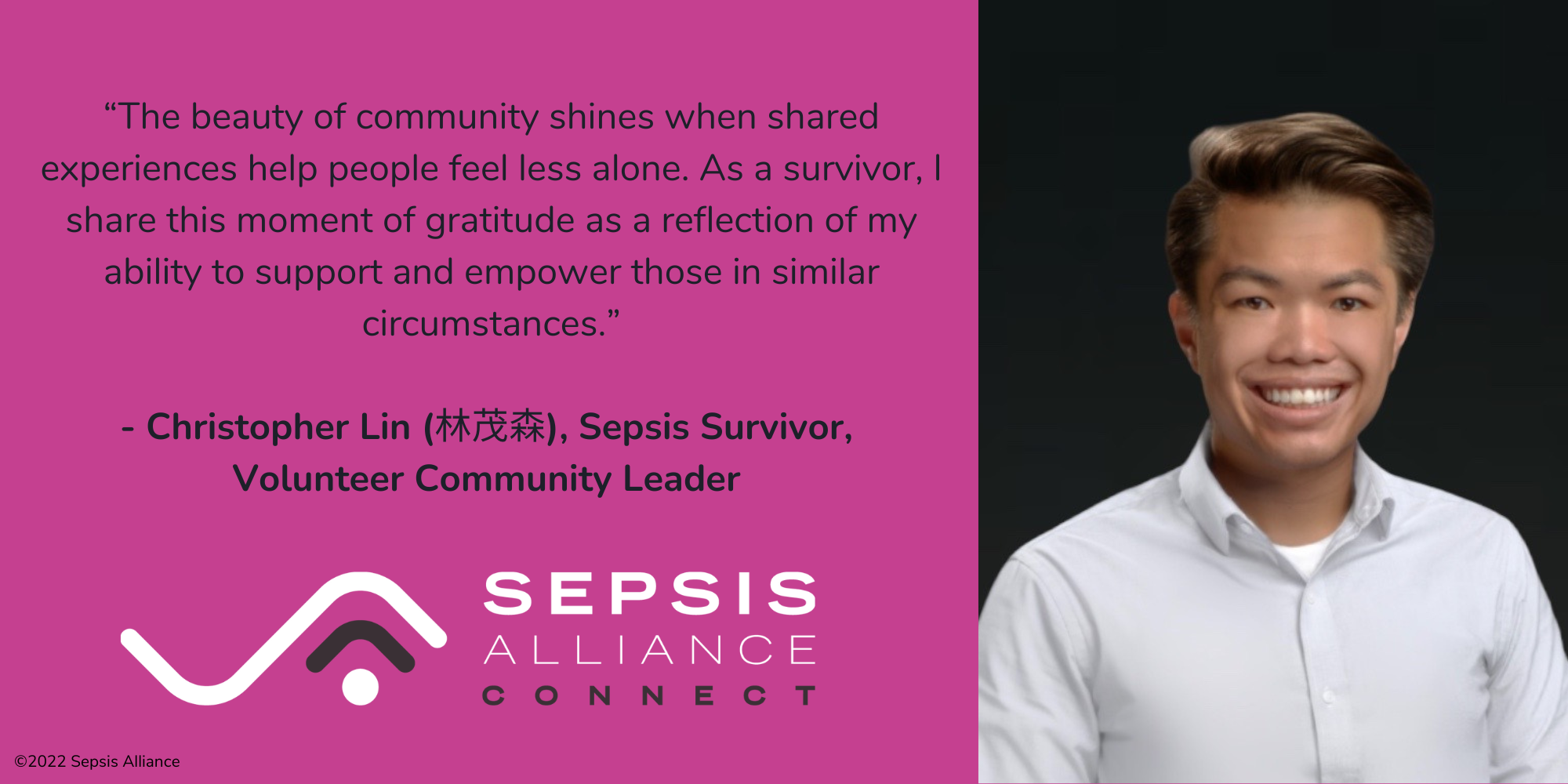Sepsis Alliance Connect is a virtual support community designed for the millions of people affected by sepsis. Each year, an estimated 1.4 million people survive sepsis and over 350,000 adults die from sepsis in the United States alone. Sepsis Alliance Connect is a place for these survivors, caregivers, loved ones, and those left behind after a sepsis death to come together and share resources, insight, and encouragement about their sepsis experience and life after sepsis.

